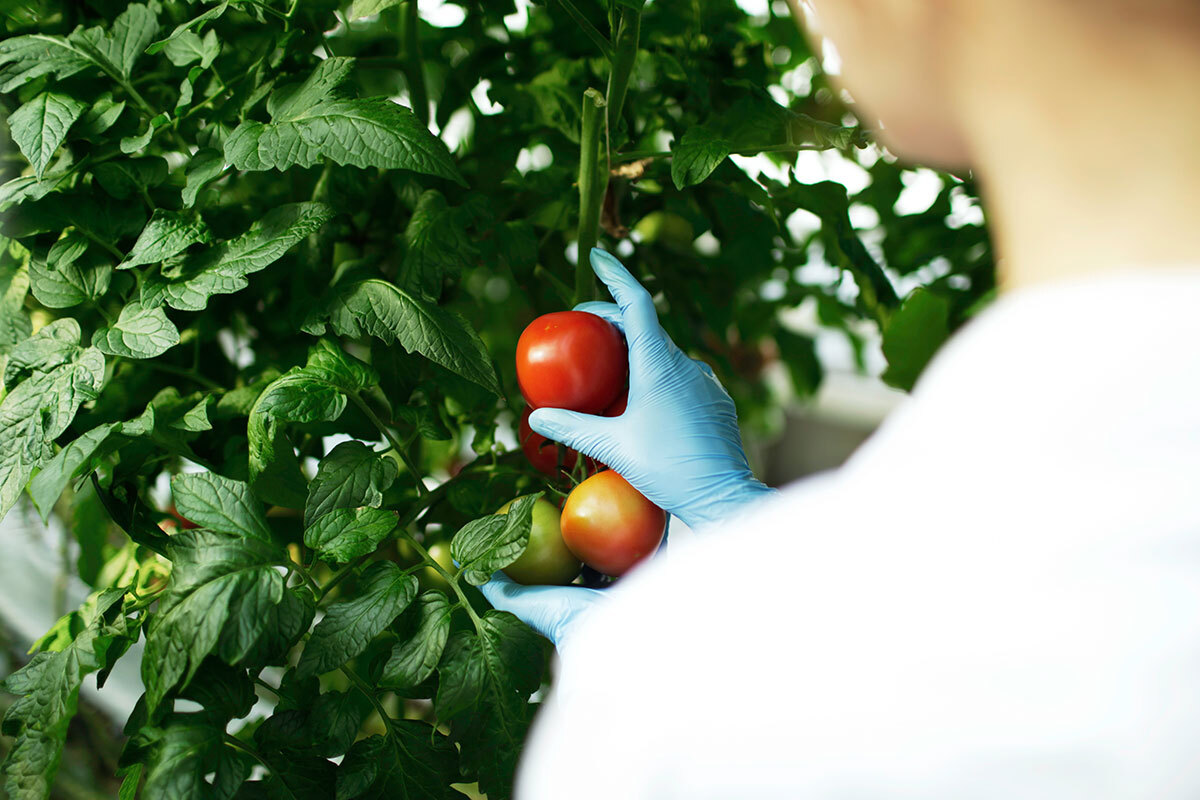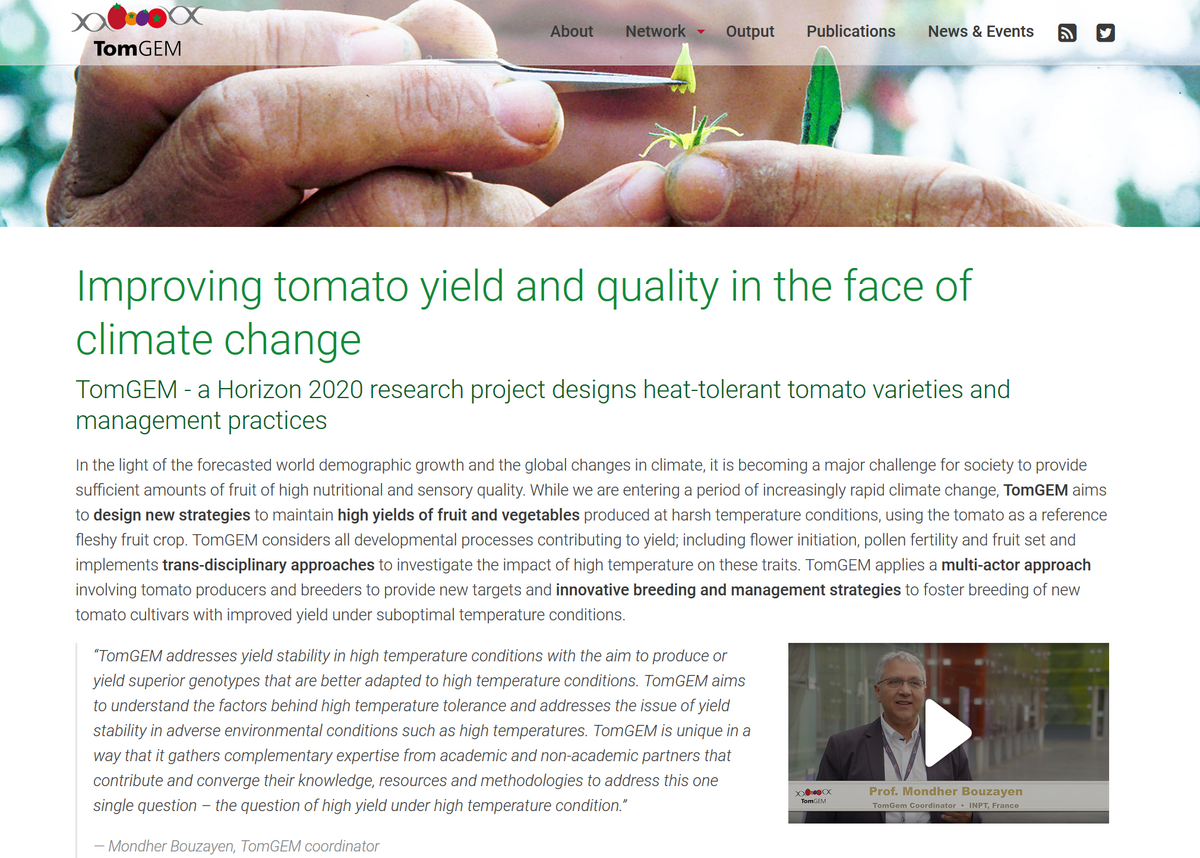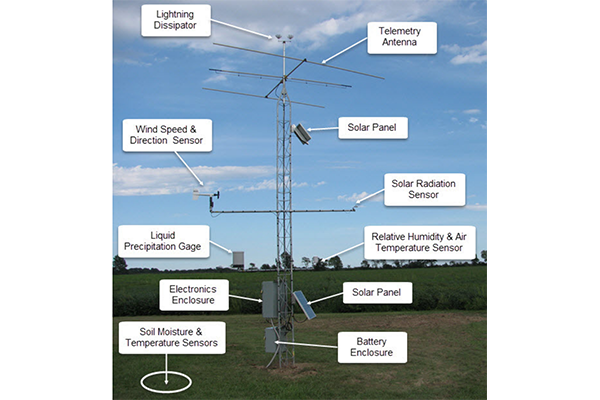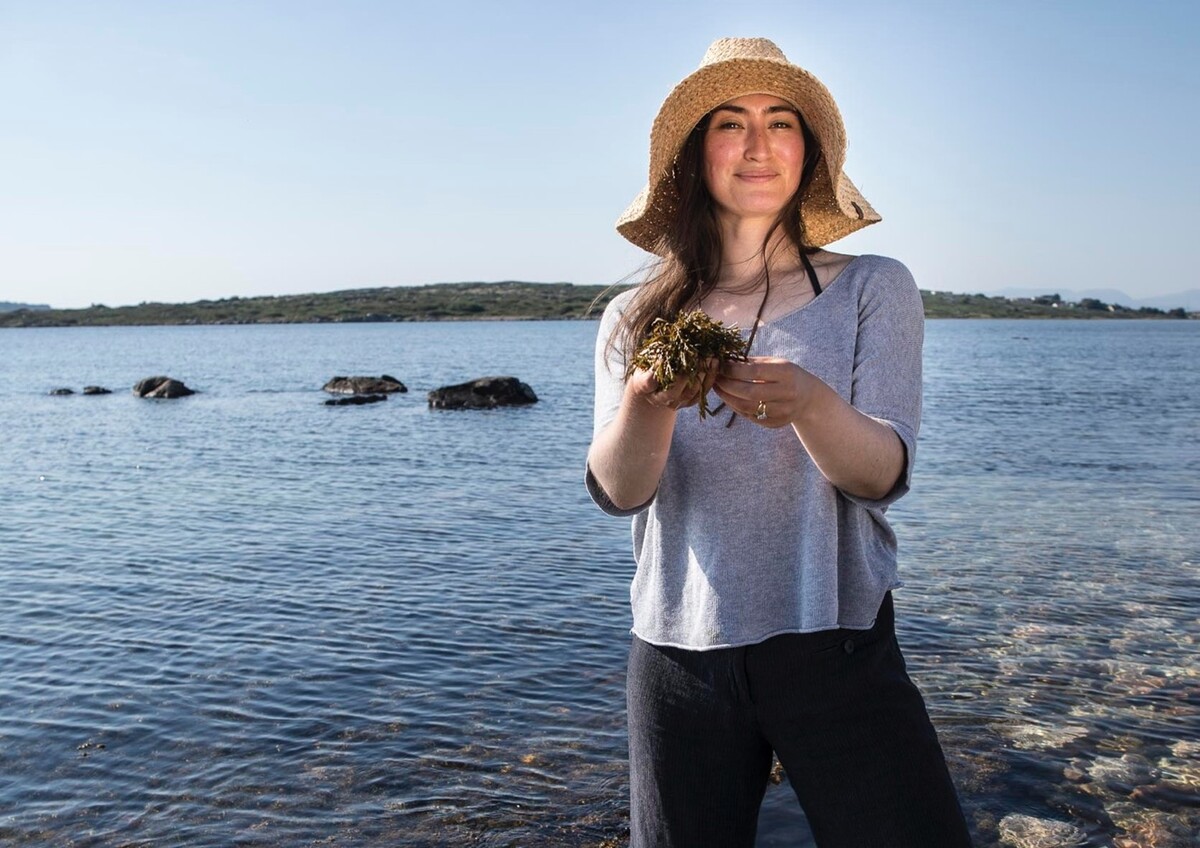
by wayhome.studio via AdobeStock
Climate change impacts
From the perspective of climate change and population growth projections, it is extremely important for society to ensure an adequate supply of nutritious and high-quality fruits and vegetables. For example, the ideal temperature for growth of tomatoes is 18°C to 29°C, but a 2°C increase in temperature has shown to negatively impact quality, despite an increase in yield, according to research in France.
Adaptation activity
The TomGEM project was launched in 2016 with support from the EU, as a four year project towards preserving high fruit and vegetable quality and yield under adverse temperature conditions. Tomatoes were chosen as a model to develop new breeding and management methods.
The four main objectives of TomGEM are :
①selection of excellent genotypes in terms of fruiting, yield stability and fruit quality at higher temperatures;
②identification of gene sequences and varietal diversity in terms of fruit yield and heat resistance;
③preparation of optimal growth conditions to improve the fruiting rate of selected genotypes at higher temperatures;
④development of breeding and control methods that can be used in various geographical conditions to ensure high yields without degradation due to higher temperatures.
Outputs / Expected benefits
The development and management of new tomato varieties is expected to improve the yield and quality of tomato production in the face of climate change impacts.

Fig.1 TomGEM website
(Source: https://tomgem.eu/)

Fig.2 TomGEM leaflet
(Source: https://tomgem.eu/)
Related Information
- TomGEM website
- Mizuho Intelligence Research Institute's "FY2016 Survey and Analysis of Regional Climate Change Adaptation Plans in the Agriculture, Forestry and Fisheries Sector (Survey and Analysis of Adaptation to Regional Climate Change Impacts in Foreign Countries)" Survey Report (Ministry of Agriculture, Forestry and Fisheries Consignment Project)
KEYWORDS
- # Case Study
- # Agriculture
- # Impact Assessment/Risk Assessment
- # Research/Innovation
- # Europe
- # Austria
- # Belgium
- # Bulgaria
- # Croatia
- # Czechia
- # Denmark
- # Estonia
- # Finland
- # France
- # Germany
- # Greece
- # Hungary
- # Ireland
- # Italy
- # Latvia
- # Lithuania
- # Luxembourg
- # Malta
- # Netherlands
- # Poland
- # Portugal
- # Romania
- # Slovakia
- # Slovenia
- # Spain
- # Sweden
- # 2019




